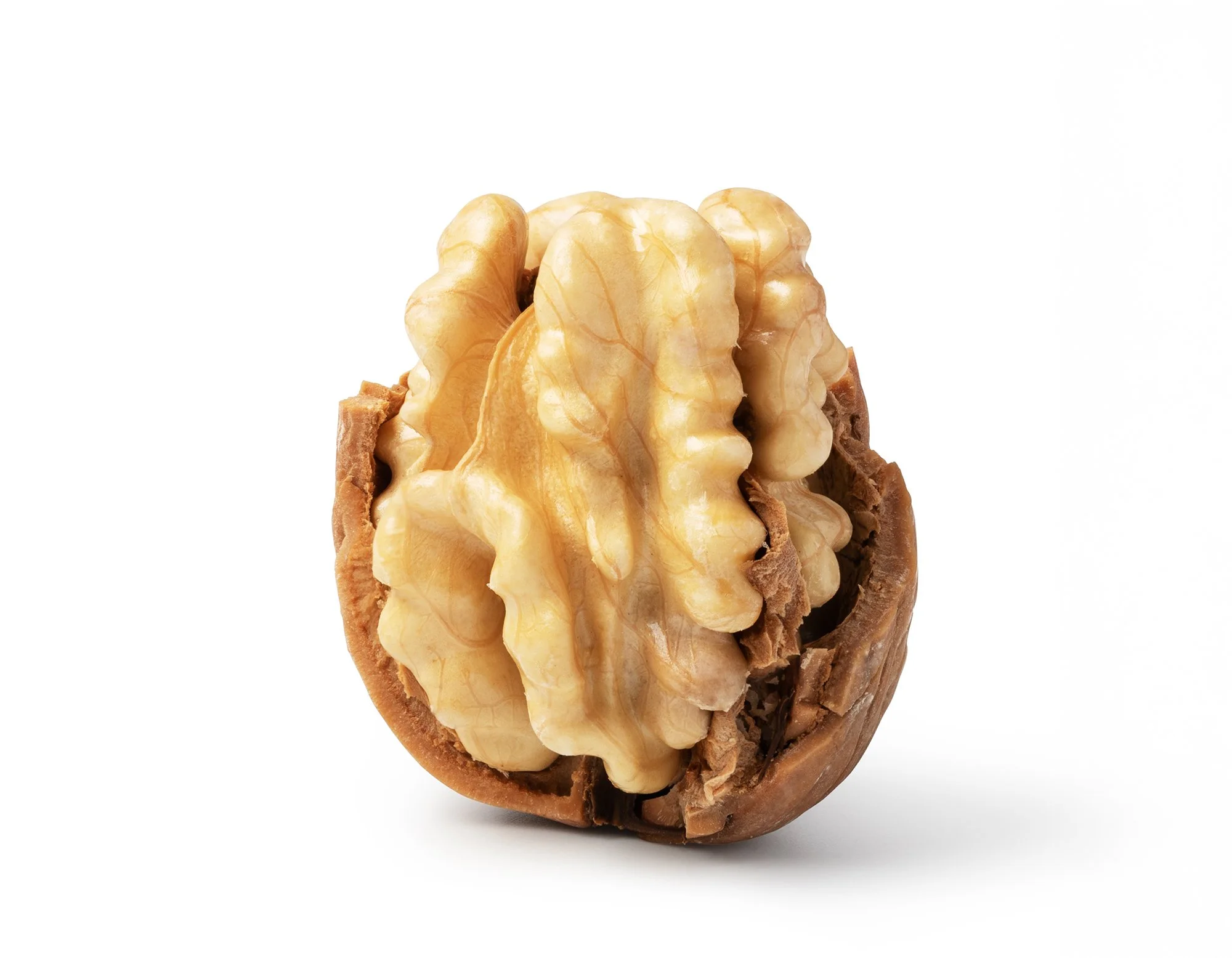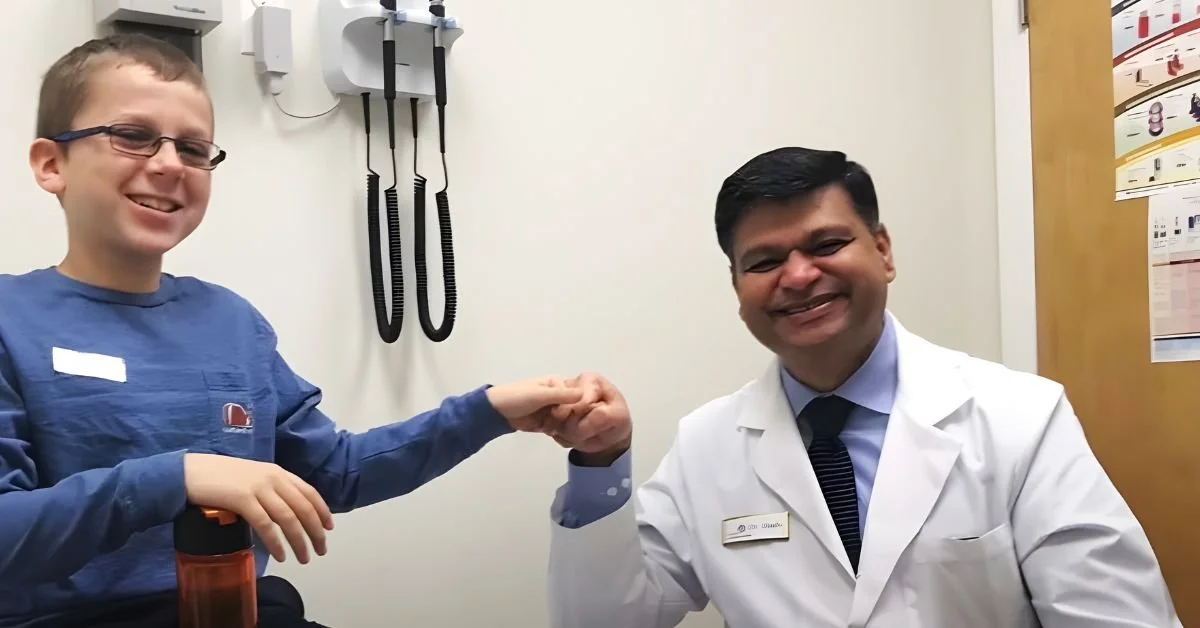Walnut Allergy
Treatment & Desensitization
Walnut Allergy Desensitization in NYC, Manhattan, Upper East Side
At NY Food Allergy & Wellness, located on the Upper East Side of Manhattan, we specialize in the diagnosis and treatment of walnut allergies. Led by Dr. Atul Shah, our team provides personalized care to manage and desensitize walnut allergies safely and effectively. Walnut allergies are among the most common tree nut allergies, with studies showing that approximately 30-40% of individuals with tree nut allergies are allergic to walnuts, often leading to severe reactions, including anaphylaxis in about 60% of cases. At NYFA, we are dedicated to preventing severe reactions through advanced diagnostics and treatment.
Understanding Walnut Allergies
Walnut allergies occur when the immune system mistakenly identifies proteins in walnuts, such as Jug r 1, and Jug r 3, as harmful, triggering an allergic reaction (Allergy Insider). These reactions can range from mild to life-threatening and are particularly common in children, though they can develop at any age. The prevalence of walnut allergies is significant, especially in Western countries where walnut consumption is widespread, and only about 10-20% of individuals outgrow this allergy (Food Allergy Research & Education).
Symptoms and Diagnosis of Walnut Allergies
Symptoms of a walnut allergy can appear within minutes of exposure and may include:
Skin reactions such as hives, redness, or swelling (angioedema)
Itching or tingling in or around the mouth and throat
Gastrointestinal symptoms such as abdominal pain, nausea, vomiting, or diarrhea
Respiratory symptoms like throat tightness, shortness of breath, or wheezing
Anaphylaxis, a severe, potentially life-threatening reaction requiring immediate medical attention (Mayo Clinic)
Food Allergy Testing for Walnuts
Source: Lincoln Diagnostics
-
Skin prick tests are a quick and effective way to identify specific allergens. During the test, a small amount of allergen is placed on the skin, which is then gently pricked to allow the allergen to enter. Results are typically visible within 15-20 minutes, making it a fast and reliable option. Needle-free tests are ideal for children and needle-phobic patients. Using advanced technology, these tests provide precise results without the discomfort associated with traditional testing methods.
-
Blood tests are highly accurate and comprehensive, suitable for all age groups. They measure the presence of specific IgE antibodies in the blood, which can indicate an allergy. This method is particularly useful for patients who cannot undergo skin testing.
IgE specific to walnut components are very helpful in accurate diagnosis of true peanut allergy compared to false positive due to underlying tree pollen allergy. Jug r 1 is considered a component with potential for systemic reactions, while Jug r 3 is usually associated with tree pollen allergy.
-
At NY Food Allergy & Wellness, we are proud to offer the Basophil Activation Test (BAT), a cutting-edge diagnostic tool for identifying food allergies. This advanced test measures the activation of basophils, a type of white blood cell, in response to allergens. The BAT provides highly accurate results and can detect allergic reactions that might not be identified through traditional testing methods.
We are the only certified lab in the region offering the Basophil Activation Test. Our certification ensures that we maintain the highest standards of accuracy and reliability in our testing procedures. By choosing NY Food Allergy & Wellness for your allergy testing needs, you can be confident that you are receiving the most advanced and reliable diagnostics available.
The Basophil Activation Test is particularly useful for patients who have complex allergy profiles or who have not found answers through conventional tests. It can also be used to monitor the effectiveness of ongoing allergy treatments, providing valuable insights for personalized care plans.
Key benefits of the Basophil Activation Test include:
High Accuracy: Detects allergic reactions that may not be visible through skin prick or blood tests.
Comprehensive Analysis: Measures the specific activation of basophils, providing detailed information about allergic responses.
Certified Lab: Conducted in our certified lab, ensuring the highest standards of testing quality and reliability.
If you suspect you have a food allergy and need precise and reliable testing, the Basophil Activation Test at NY Food Allergy & Wellness is an excellent choice. Contact us today to learn more about this innovative test and to schedule your appointment. -
Oral Food Challenges are considered the gold standard for diagnosing food allergies. During an OFC, the patient consumes small amounts of the suspected allergen under strict medical supervision to observe any reactions. This method provides definitive results and is conducted with the utmost care and safety.
Managing Walnut Allergies in Daily Life
Managing a walnut allergy requires diligence and preparedness. At NY Food Allergy & Wellness, we offer comprehensive guidance on:
Reading Food Labels: Identifying hidden walnut ingredients in processed foods, such as baked goods, pestos, and snack mixes, and checking for “may contain tree nuts” warnings (Food Allergy Research & Education).
Restaurant Safety: Communicating your allergy to restaurant staff and avoiding dishes with potential cross-contamination, particularly in Mediterranean and baked goods where walnuts are common (Allergy & Asthma Network).
Emergency Preparedness: Carrying an epinephrine (e.g., Epinephrine Auto Injectors like Epi-Pen, Auvi-Q, or Nasal Epinephrine like Neffy) at all times and maintaining an action plan for accidental exposures (NYFA).
Managing Multiple Food Allergies
Walnut allergies often coexist with other tree nut allergies, such as pecans, due to similar protein structures, and approximately 30-50% of individuals with a tree nut allergy are allergic to multiple nuts (Allergy Insider). At NY Food Allergy & Wellness, our FATE™ (Food Allergy Tolerance Enhancement) Program specializes in managing multiple food allergies through comprehensive diagnostics and desensitization, helping patients achieve greater dietary freedom.
Diagnostic Approach
We begin with:
Detailed Patient History: Reviewing the patient’s medical history and symptoms.
Advanced Testing: Utilizing skin prick tests, blood tests, and the Basophil Activation Test to identify specific allergens and assess reaction severity.
Continuous Support
Regular Follow-ups: Monitoring progress and adjusting treatment plans.
Patient Education: Providing resources and training for effective management.
Support Groups: Facilitating patient support groups for shared experiences and strategies.
Personalized Treatment Plans
Our customized plans aim for food allergy desensitization and may include:
Oral Immunotherapy (OIT): Gradually introducing allergens to desensitize the immune system.
Sublingual Immunotherapy (SLIT): Administering allergens under the tongue to build tolerance.
Medications: Antihistamines can relieve mild symptoms, while epinephrine is used for severe reactions like anaphylaxis. Omalizumab (Xolair) injections can be considered to reduce the risk or reactions.
Dietary Management: Guidance on safe food choices and avoidance strategies.
Emergency Preparedness: Training on using epinephrine auto-injectors and creating action plans for accidental exposures.
Frequently Asked Questions
-
Feeling "weird" after eating walnuts could indicate an allergic reaction, ranging from mild symptoms like itching or tingling in the mouth to severe reactions like hives or difficulty breathing. This may be due to an immune response to walnut proteins, such as Jug r 1 or Jug r 3, or could be related to Pollen Food Allergy Syndrome (PFAS) if you're sensitive to birch pollen. At NY Food Allergy & Wellness, our FATE™ Program uses advanced diagnostics, including skin prick tests and Basophil Activation Tests, to identify the cause and guide management (Allergy Insider; Mayo Clinic).
Currently, walnut avoidance is a general recommendation, but several treatments can help manage the condition:
Avoidance: The primary treatment involves avoiding walnuts and walnut-containing products.
Medications: Antihistamines can relieve mild symptoms, while epinephrine is used for severe reactions like anaphylaxis. Omalizumab (Xolair) injections can be considered to reduce the risk or reactions. Read more.
Sublingual Immunotherapy (SLIT) and Oral Immunotherapy (OIT): These treatment options gradually introduce small amounts of walnut to desensitize the immune system over time (American Academy of Allergy, Asthma & Immunology). Doing the OIT with FDA approved product is an effective option for walnuts. At NYFA, we offer SLIT and OIT products and options based on patient needs (single vs. multi-foods) and family’s preference for safety and the most efficient way to get to freedom.
-
Yes, it is possible to be allergic to walnuts alone, though many individuals may also react to pecans or other tree nuts due to similar protein structures. About 30-40% of those with tree nut allergies are allergic to walnuts, but isolated walnut allergies can occur. Comprehensive testing through our FATE™ Program at NY Food Allergy & Wellness, including blood tests and oral food challenges, can confirm if the allergy is specific to walnuts.
-
Nut allergies, including walnut allergies, can develop at any age, even if you’ve previously eaten walnuts without issue. This may be triggered by changes in immune system sensitivity, often linked to genetic predisposition, environmental factors, or conditions like eczema or asthma. Adults can develop allergies due to new exposures or cross-reactivity with pollen or other foods. Our FATE™ Program at NY Food Allergy & Wellness offers precise diagnostics to pinpoint new allergies and create tailored treatment plans.
Do Walnut Allergies Get Worse with Age?
Walnut allergies can persist throughout life and may become more severe with repeated exposure. However, with proper management and treatment, the risk of severe reactions can be minimized. Studies have shown that desensitization therapies, such as those provided in our FATE™ Program, can help manage Walnut allergies effectively, even in adults.
-
Benadryl (diphenhydramine) or other antihistamines like Zyrtec or Claritin can help relieve mild walnut allergy symptoms, such as itching or mild hives, by blocking histamine release. However, it is not effective for severe reactions like anaphylaxis, which requires epinephrine (e.g., EpiPen). At NY Food Allergy & Wellness, we educate patients through our FATE™ Program on appropriate use of emergency medications and emergency preparedness, ensuring they have a comprehensive action plan for allergic reactions.
-
There is no way to "flush out" an allergic reaction, as it is an immune response, not a toxin. For mild walnut allergy symptoms, antihistamines like Zyrtec, Claritin, or Benadryl may reduce discomfort, and symptoms may subside naturally. Severe reactions, like anaphylaxis, require immediate epinephrine and medical attention. Drinking water or other methods cannot eliminate allergens. At NY Food Allergy & Wellness, our FATE™ Program guides managing reactions and preventing future exposures through desensitization and education.
-
There is no shortcut to “calming down” a nut allergy. To manage a walnut allergy reaction, immediate action is key: for mild symptoms, take an antihistamine like Zyrtec, Claritin, Benadryl; for severe symptoms and for more than one system involved, use an epinephrine auto-injector or epinephrine nose spray and seek emergency care. Long-term, avoiding walnuts and cross-reactive foods like pecans is essential. At NY Food Allergy & Wellness, our FATE™ Program offers treatments like Oral Immunotherapy (OIT) to desensitize the immune system, alongside training on emergency preparedness to reduce reaction severity and improve quality of life.
Dr. Atul Shah:
Pioneering Food Allergy
Treatments in Manhattan.
Dr. Atul Shah, MD, FACAAI, FAAAAI, is the founder of NY Food Allergy & Wellness and a renowned allergist with over 20 years of experience. With more than 15,000 success stories across children, teens, and adults, Dr. Shah’s expertise knows no age limits. He holds dual fellowships and has been honored with prestigious awards, including America’s Top Physician. Dr. Shah is a leader in allergy care, offering personalized, life-changing treatments for all ages.
Dr. Atul Shah, MD, FACAAI, FAAAAI, is the founder of NY Food Allergy & Wellness & a renowned allergist with over 20 years of experience. With more than 15,000 success stories across children, teens, & adults, Dr. Shah’s expertise knows no age limits. He holds dual fellowships & has been honored with prestigious awards, including America’s Top Physician. Dr. Shah is a leader in allergy care, offering personalized, life-changing treatments.
What our patients are saying...
About Dr. Atul Shah: Testimonials
Dr. Shah Interview with Donna Drake
Food Allergy Success: Cameron
New York City Location
110 East 60th St., Suite 708
New York, NY, 10022
Hours of Operation
Tuesday: 9am-5pm
Wednesday: 9am-5pm
Thursday: 9am-7pm
Friday: 9am-5pm
Saturday: 9am-2pm
Sunday/Monday: Closed
Where can I learn more about Dr. Atul Shah?
There are several ways to learn more about Dr. Atul Shah. Follow these links for more detailed information, including interview by WABC and News 12. Health.usnews, healthgrades, doximity, center4asthma, OIT101, NYULangone, Sharecare, Medicalnewstoday, Matherhospital, NPIdb, PatientFusion, MD.com, Medifind, Spacial Health, Amerimmune.
You can find more information on all treatments, including success stories and more on Instagram, Facebook, TikTok, YouTube and Amazing Allergist.







































